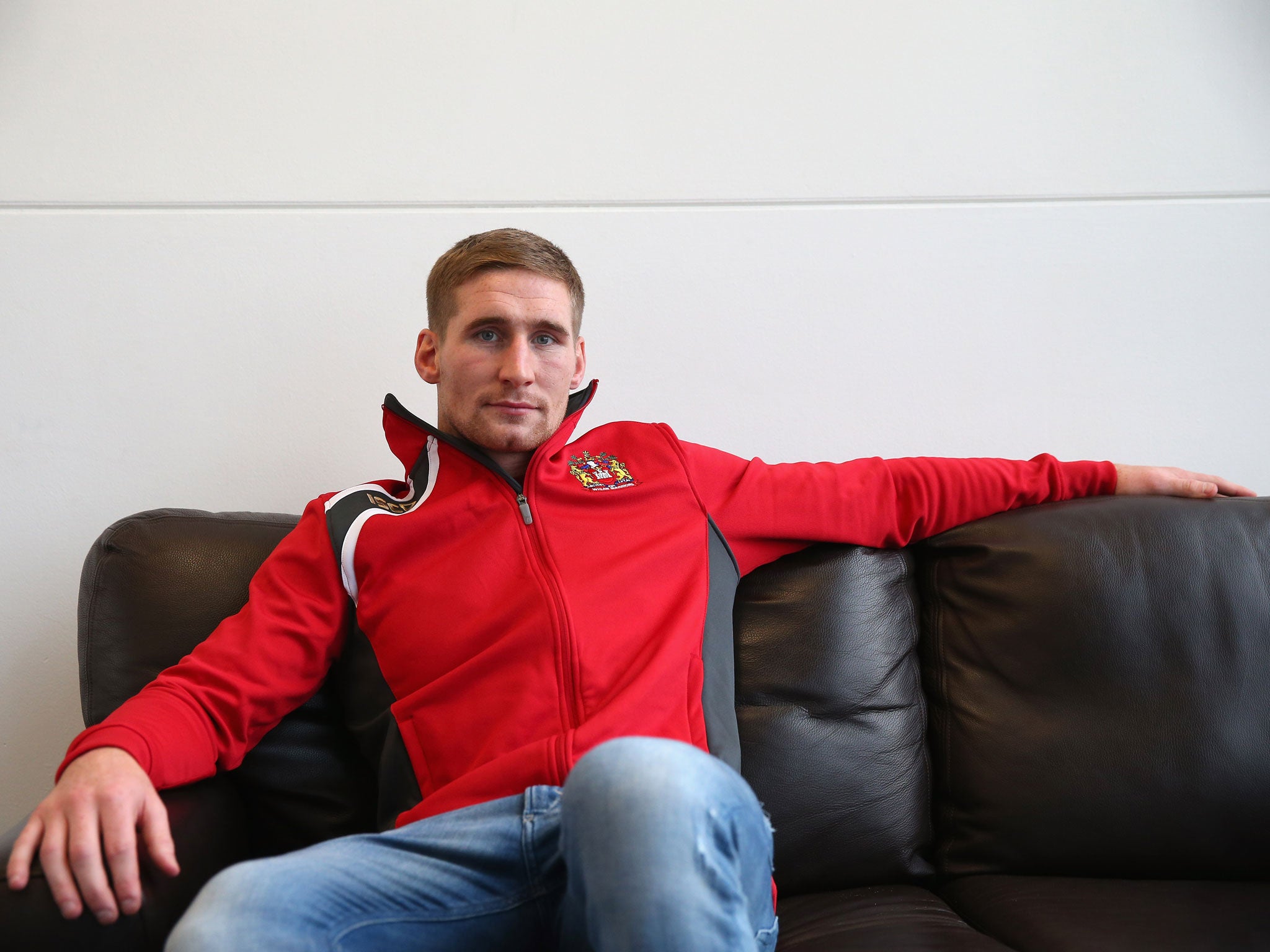Sam Tomkins holds the key as Wigan seek repeat of '85

Your support helps us to tell the story
From reproductive rights to climate change to Big Tech, The Independent is on the ground when the story is developing. Whether it's investigating the financials of Elon Musk's pro-Trump PAC or producing our latest documentary, 'The A Word', which shines a light on the American women fighting for reproductive rights, we know how important it is to parse out the facts from the messaging.
At such a critical moment in US history, we need reporters on the ground. Your donation allows us to keep sending journalists to speak to both sides of the story.
The Independent is trusted by Americans across the entire political spectrum. And unlike many other quality news outlets, we choose not to lock Americans out of our reporting and analysis with paywalls. We believe quality journalism should be available to everyone, paid for by those who can afford it.
Your support makes all the difference.When it comes to Rugby League Challenge Cup finals, no two names resonate together quite like Hull and Wigan.
The two clubs, which collide at Wembley next Saturday afternoon, last met in the showpiece in 1985, producing what many believe to have been the best final ever.
Wigan won a match featuring a wealth of the world's greatest players of the time 28-24. The repeat next weekend has much to live up to.
The 1985 final was a match that went a long way towards defining its era in the game. The great players who dominated it were predominantly from overseas: Hull's four Kiwis, plus the world's best scrum-half, Peter Sterling; Wigan's John Ferguson and, most crucially, Sterling's partner for Parramatta, New South Wales and Australia, the elegant Brett Kenny.
Even the great British player in the making, Garry Schofield, could only command a place on the Hull bench.
This was the era after the lifting of the international transfer ban, when the world's best players came to Britain, often on short-term contracts. Kenny and Sterling were two shining examples.
The timing of the two seasons and the strength of the Australian dollar mean that it is different these days. Players who are not quite as great come for longer.
So there will be no overseas players like Kenny or Sterling – the Lance Todd Trophy winner as man on the match and his close runner-up in 1985 – at Wembley this year, but there will be influential imports playing their part.
Pat Richards, for instance, is coming to the end of a seven-season stint on the wing for Wigan, for whom he has won countless matches with his metronomic goal-kicking and sharp, close-range finishing.
Hull have earned a rather more hit-and-miss reputation for their recruitment. In particular, they have cast the net repeatedly without coming up with the right half-backs.
Now, just in time for their reappearance at a venue where they have never won, they believe they might have got it right, with the experienced Daniel Holdsworth from Salford and, in mid-season, the young Jacob Miller from West Tigers in Sydney.
There have been times when they have looked as though they could be the answer, although Wembley on Saturday will be the measure of that.
If there is one unarguably great player in the final, though, it is an Englishman – Sam Tomkins.
The Wigan full-back is widely presumed to be heading to Australia's NRL at the end of the season, the traffic between the hemispheres having gone into reverse in recent years, at least for the very cream of the talent.
Coincidentally, he has started to miss matches for a variety of reasons and, whilst Wigan can win without him, they tend not to.
Take their captain, Sean O'Loughlin, out of the equation, if he fails to recover from a calf injury, and the Warriors start to look just a little leaderless.
"It seems like they can't play without Tomkins," says Steve Donlan, who played centre for Wigan in the 1985 final. "I thought Hull were outstanding in their semi-final, so I give them every chance.
"I don't think it can be as good as '85, because of the emphasis on defence these days. Also, back then we had great imports, not just run-of-the-mill ones, keeping local lads out of the side."
Hull have had their problems as well. Their first-choice full-back, Shannon McDonnell, is unlikely to be fit, making his stand-in, Jamie Shaul, potentially one of Wembley's least-experienced participants.
There has also been a doubt over Tom Lineham, the strapping winger who is one of the season's outstanding discoveries, but who left the ground on crutches with an ankle injury last week.
If he plays, he will complete an array of wing talent that is reminiscent of 1985: him and Tom Briscoe versus Wigan's Richards and Josh Charnley.
One reason that 1985 was such a richly entertaining match was that both sides had reason to think that they had the beating of the other out wide – and played accordingly.
There is another similarity. As in 1985, Wigan and Hull will attract a full house to Wembley, albeit a different Wembley and a different capacity.
That is much to the relief of the RFL, because it would not have been the case if various other candidates had made it through to the final: the Catalan Dragons, Huddersfield, even Warrington (who have made a recent habit of getting there) or, worst of all, the London Broncos.
It may not necessarily be the Cup final that everyone wanted, but it is one that will be fascinating for anyone who was there 28 years ago.
Join our commenting forum
Join thought-provoking conversations, follow other Independent readers and see their replies
Comments